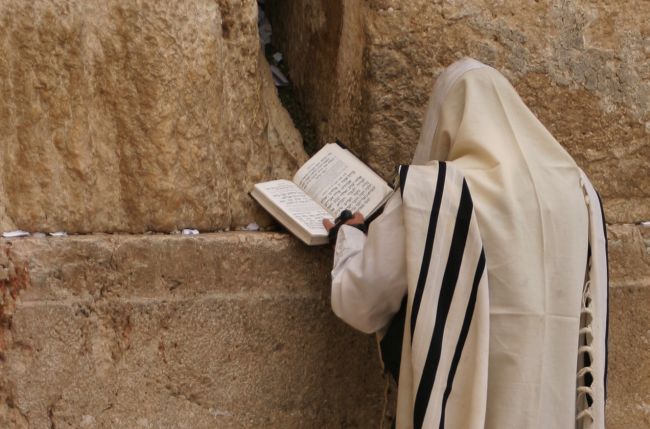Last class, we took a break from any textual analysis and instead introduced the third and final section of the Shemoneh Esraei prayer, our focus on thanking HaShem for everything he has given us. Now we are turning to the first bracha of this final section, and our seventeenth blessing overall. As always, let’s start with the text of the bracha;
“Be favorable, HaShem, our G-d, toward Your people Israel and their prayer and restore the service to the Holy of Holies of Your Temple. The fire-offerings of Israel and their prayer accept with love and favor, and may the service of Your people Israel always be favorable to You. May our eyes behold Your return to Zion in compassion. Blessed are You, HaShem, Who restores His presence to Zion.”
As we discussed a few classes ago, the sixteenth bracha of the Shemoneh Esrai prayer – and the final prayer of the middle section, was the Shema Koleinu bracha, where we ask HaShem to accept all of our prayers. As we know, our prayers today serve as a substitute for the sacrifices and fire-offerings offered during the times of the two Temples. Rav Avraham Chaim Feuer notes that it makes sense, then, for us to now transition to the thanksgiving portion of the blessings by first asking for the return of the sacrificial service. We tell HaShem that we long for the days when the true service of the Jewish people was firmly in place.
Of course, this begs an obvious question – if we have left the middle section behind (where we were inserted all of our prayer requests) and have now transitioned to the thanksgiving portion of the Shemoneh Esrai, why are we immediately beginning…with a request? Doesn’t this request belong in the last section?
Perhaps, in our request for HaShem to restore the sacrificial service that will come with the rebuilding of the Temple, we are also acknowledging and thanking G-d for what He has provided us with in the interim – the power of prayer. We just spent the last several blessings requesting all of our various needs and were given a one-on-one audience with the Ruler of the world. The least we can do now is acknowledge our gratitude for that gift and also ask HaShem to restore the fire-offerings so we can serve Him as He intended.
While we anxiously await the arrival of Mashiach and the rebuilding of the Beis HaMikdash, we can still glean personal lessons from this bracha as well. To start, we need to ensure that we are acutely feeling the request listed here. At the time of this writing, the Jewish calendar is in the middle of the Three Weeks, where we mourn the loss of the Temples. As we recite this blessing, we can remind ourselves how incomplete our Jewish service is – and our lives are – without the presence of the Temple. For these few moments at least, we can commit to truly feeling that pain and beseeching HaShem to send Mashiach.
But perhaps there are other lessons to glean as well. As Rabbi Feuer notes, the request that the fire-offering of the Jews be accepted may mean more than just the return of the formal sacrificial service. Rabbi Feuer explains that each and every Jew has a fire burning within him or her, waiting and ready to be harnessed properly. As we recite this prayer, we can also commit to never losing sight of that burning fire and to work, slowly and steadily, on harnessing that energy and that drive properly.
There is also plenty of commentary surrounding the bracha’s focus on our “eyes beholding [G-d’s] return to Zion in compassion.” While plenty can be said about the need to thank HaShem for the miracle of vision, or for the need for us not ensure we’re not sullying that miracle with what we look at, perhaps we can set the bar lower to start our journey of self-improvement. As we’ve discussed many times during this series of classes, concentration during Tefillah can be so hard to master. The prayer is lengthier than others and, because we recite it three times a day, can become rote.
How easy it can be – and I am as guilty of this as anyone – to let our eyes wander during davening, to begin to focus our vision on anything but the words in front of us. As we ask HaShem to allow our eyes to witness our redemption, we can also try and remind ourselves that, at the very least, we can take the gift of sight we have and attempt to concentrate as much as we possibly can on our prayers.


